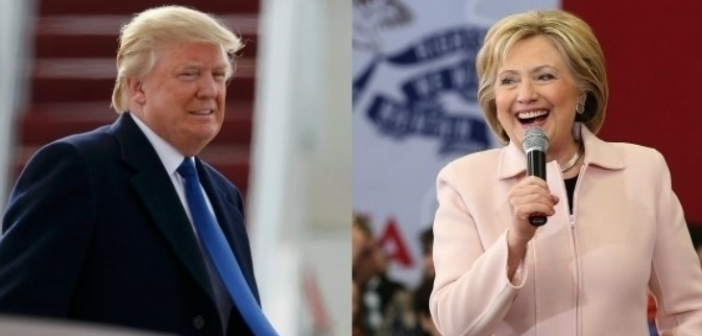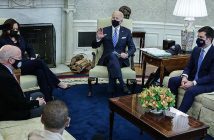by Manoj Ladwa
I, of course, understand the pressures the UK, US and other Western economies are under through unchecked immigration and the sapping of their own homegrown skills talent pool. However, the market evangelists have converted to the dogmas of those they preached free trade to. How else can one square with the United Kingdom’s Conservative Party taking a leaf out of Donald Trump’s Little Red Book (if he has one, a la the great Chinese Helmsman Mao Tse Tung) and clamping down on immigration of students and talent from India?
Outsourcing of services and the export of talent remains two areas of critical importance to the Indian economy. Any moves to place roadblocks on this path can hurt the country.
The US and the UK were among the most vociferous preachers of the free market ideology when free trade meant more jobs and higher living standards in those countries. They forced their views down the throats of Asian and other developing countries even when politicians in these nations pleaded that allowing greater access to western goods would cause distress to their local industries and throw thousands out of jobs.
Donald Trump, a billionaire real estate tycoon, was personally a beneficiary of the good times that rolled in the US thanks, in part, to the predatory policies its companies followed across the globe and then repatriated billions back home.
Bill Clinton, Hillary’s husband and former US President, too, used the enormous power of his office to open up foreign markets for US companies.
But the post-Lehman global economic crisis has turned the problem on its head. The fears of developing World politicians and, indeed, much of their rhetoric against free trade are now being echoed at political meetings in the US, the UK and the rest of the West.
Trump has been vocal about it. That’s his nature. But Hillary Clinton, who has a political antenna that is second to none, has been carefully ambivalent about her views on free trade. So, what are her views on this issue that is so exercising a large section of her potential voters?
We don’t know. And that’s because she won’t openly come out on one side for fear of losing her backers on the other.![]() But the good news for India is that regardless of how Clinton, Trump or May react to the shrill cries in favour of protectionism from their electorates, the Indian government is unlikely to change its course.
But the good news for India is that regardless of how Clinton, Trump or May react to the shrill cries in favour of protectionism from their electorates, the Indian government is unlikely to change its course.
It is proceeding doggedly down the road of improving the ease of doing business and improving its competitiveness, evident in the massive improvements in this ranking in the World Bank’s Ease of Doing Business Index and the Global Competitive Index.
For the West, to go back on the unspoken covenant to help the Indian economy break the shackles that held it back from fulfilling its potential would then be a breach of faith.
The bottomline: it shouldn’t pull up the drawbridge for Indian talent or Indian business.







